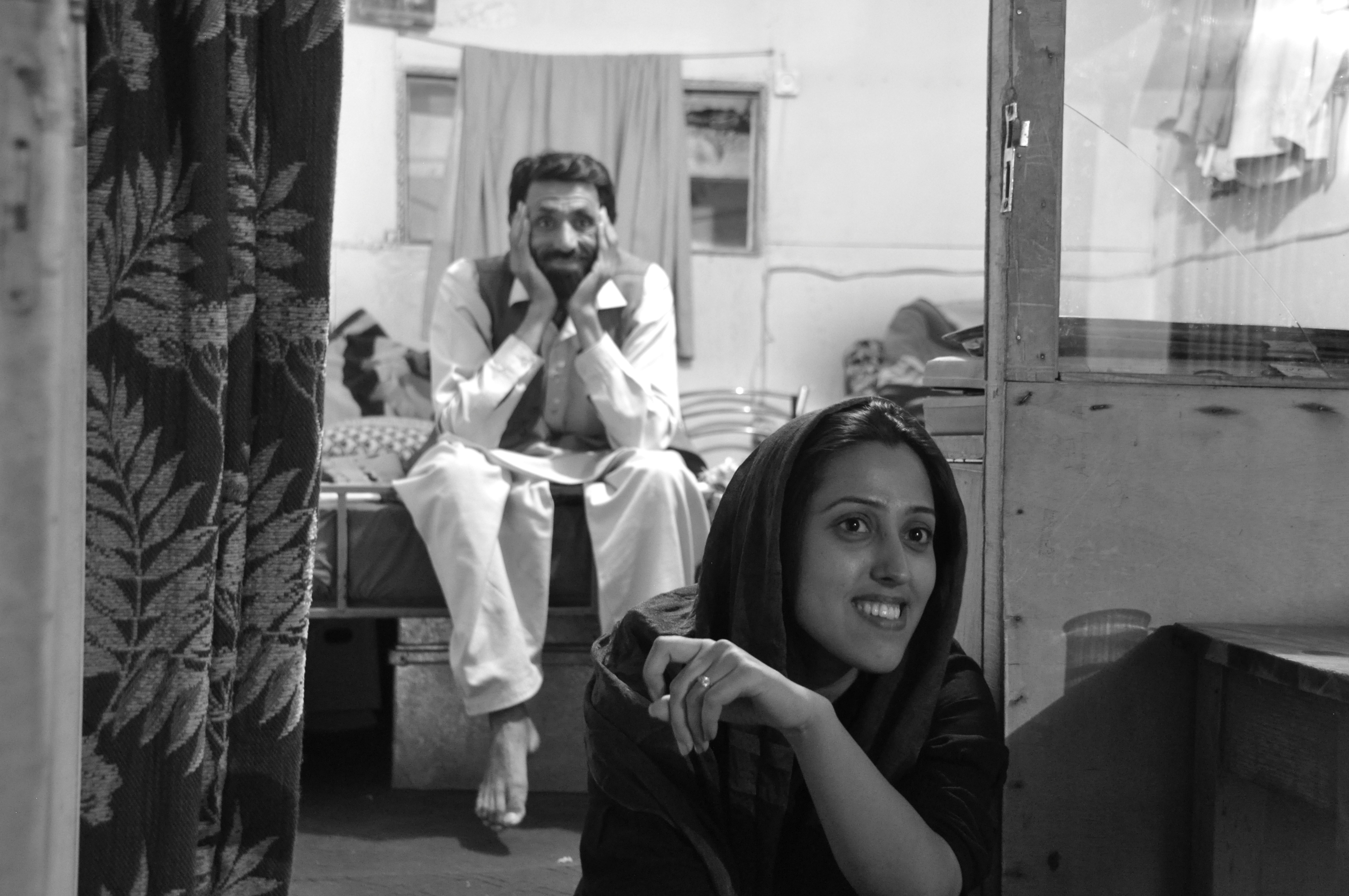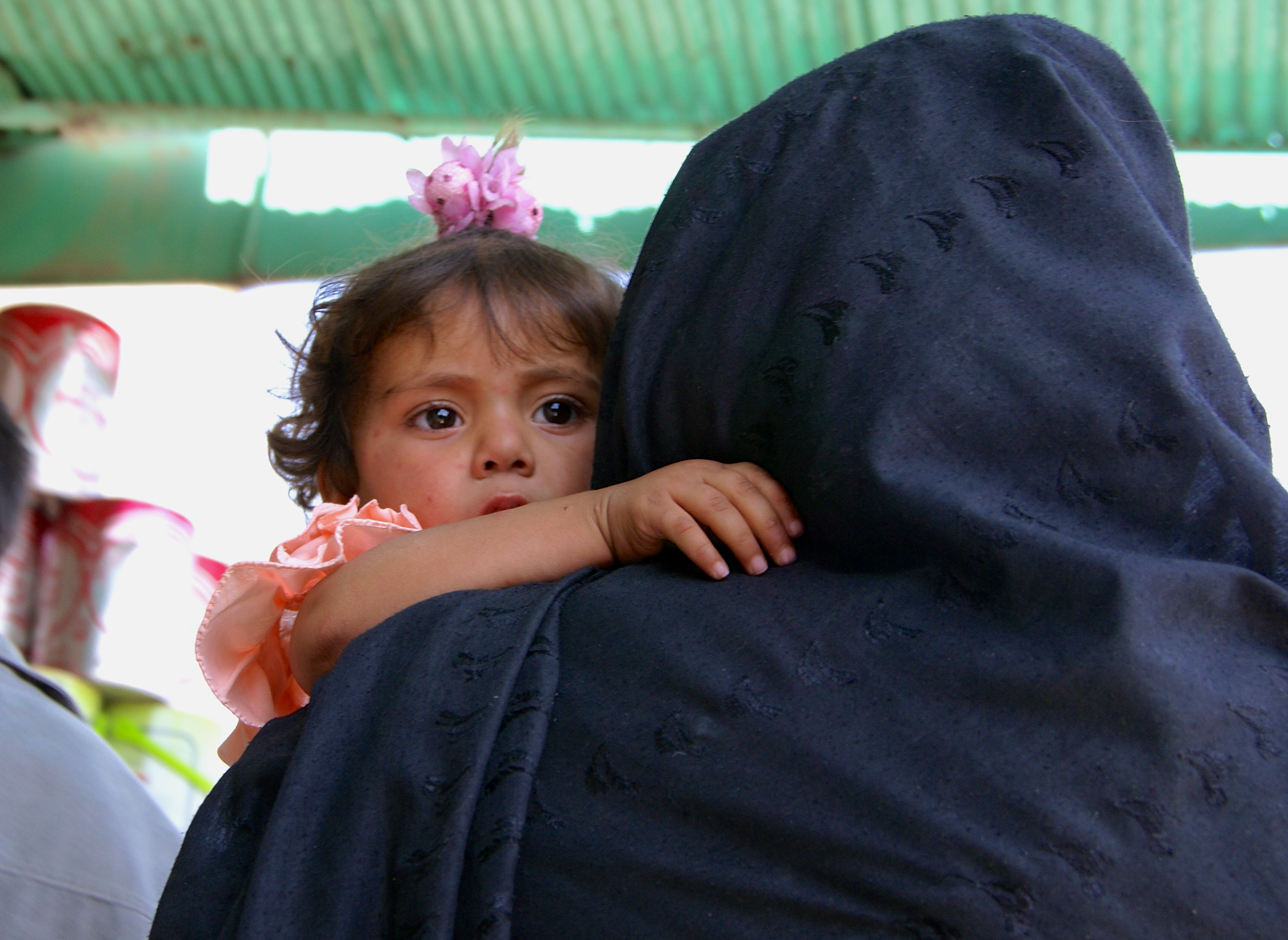
Name: Narges
Age: 26
Ethnicity: Tajik
Province: Herat
Narges, who asked to only use her nickname, is soft-spoken and always colorfully dressed, usually opting for rich, dark fabrics. Her affect is, at first glance, demure, almost passive. But it belies a fearlessness and a clever wit, both of which she deploys constantly as an ardent defender of women's rights who says she thinks her country has it all wrong, and who has maintained and defended this view, though there is little support for it even within her own family.
Narges speaks slowly and carefully in English, and in her native language with an Iranian accent (which she believes is proper and her friends poke fun at as haughty), but she takes her words seriously and believes the message she has is worth delivering with precision. Besides, her accent is the result of two decades spent in Iran and she doesn't see the use in spending much energy trying to change it.
The following are the words of Narges, as told to Jeffrey E. Stern.
My mother always told me a story about her life, that they were afraid to express their religion because they were Shia and their neighbors were Sunni, and Shia people were a minority in Herat and in most of the provinces of Afghanistan.
So why did they choose to go to Iran? Because the government was, is, Shia, and they thought: "If we go to Iran, we won't have any problem. They will understand us, they will treat us as human!" But what they thought about Iran was totally wrong. We faced so many limitations because we were always seen as Afghan. For example, for education, that's the reason I left Iran and left my family, because I wasn't allowed to go to university. So I had a big interruption in my education. For five years I couldn't continue my education, because they banned us from the university, all Afghans.
And you don't know the policy of Iran. Never, you will never understand the policy of Iran. Sometimes they allow you to go to university, sometimes they don't. It's like that. Sometimes you have movement limitation — Afghans cannot buy houses or cars, they cannot travel in other cities, only because they are Afghan, even though they have good resumes, even though they have been in Iran for 30 years.
I was born in Iran. So my first time in my own country was 2010. It was strange. I faced so many difficulties because my accent was Iranian, and Afghan people, they don't have a good attitude toward Iranian people and the Iranian government because they believe that Iran is misusing Afghans. Afghans are doing hard work in Iran, but they have no rights, they are not treated as humans. They thought I'm Iranian, so I'm like the government. They ridiculed my accent.
I was here in my country for two years and then I got a scholarship, so this is the third year that I haven't seen my family. I hope next year I can visit them. I tried to get a visa to go see them in Iran, but the Iranian government didn't give me a visa. I'm just a student! But they didn't give it to me. They said that "you will stay here, you won't go back."
***
I had come to Afghanistan with my aunt. She had come from Iran to visit her daughter, so I came with her; I couldn't come alone. First we came to Herat, and I found Herat very conservative. The people are conservative and women are really in trouble in Herat, to get education, to express themselves. I remember when I went to a party, and one of the girls came to me and said she has problems getting an education, because whenever she goes to school, her other relatives -- mostly men -- go to her father and say "you know, your daughter can read and write, she doesn't need anything else and she should get married." She was young, really young.
I think the presence of America in Afghanistan is necessary to help women get education. When America leaves, women will miss this opportunity. Now I have friends, I've gone to Bangladesh for education, I'm studying liberal arts, you know, we're studying humanism and women's rights. We can see we have so many shortages in women's rights, and we have to do so many things. But we don't think government will help us.
I will give an example from my friends. They had a project about combating child marriage, so they went to talk to Parliament members, but the Parliament members told them: "No, we can do it. And we should do it." And one of the Parliament members told them, "You know, these are not only my words. I have so many other friends in Parliament who agree with me."
Many Parliament members are people who had been in Afghanistan's wars, they were mujahedeen, and during Taliban times, they changed their policies. Their minds are really old, and now they are in Parliament. This is the problem we have. And if foreign organizations don't push them, don't put pressure on them, they won't help us.
I don't know if this news is true, but I heard about the law, the "violence against women" law. We were going to have a law against violence against women but Parliament didn't accept that. But I heard that now the American government is putting pressure on Parliament members. I heard that the American government told them that if they don't support it, if they don't confirm this law, they will cut the budget that they are giving to the Afghan army. So that's good.
This is our problem, we want to improve women's situations, improve child rights in Afghanistan, but if we don't get support from Parliament and America is leaving, how we can improve? How we can have progress?
When America leaves, I know that most of the human rights organizations will leave Afghanistan because of the security. And we need more time. We need America to stay more, so we can, you know, build what we want.
And then they can go. Laughs.






